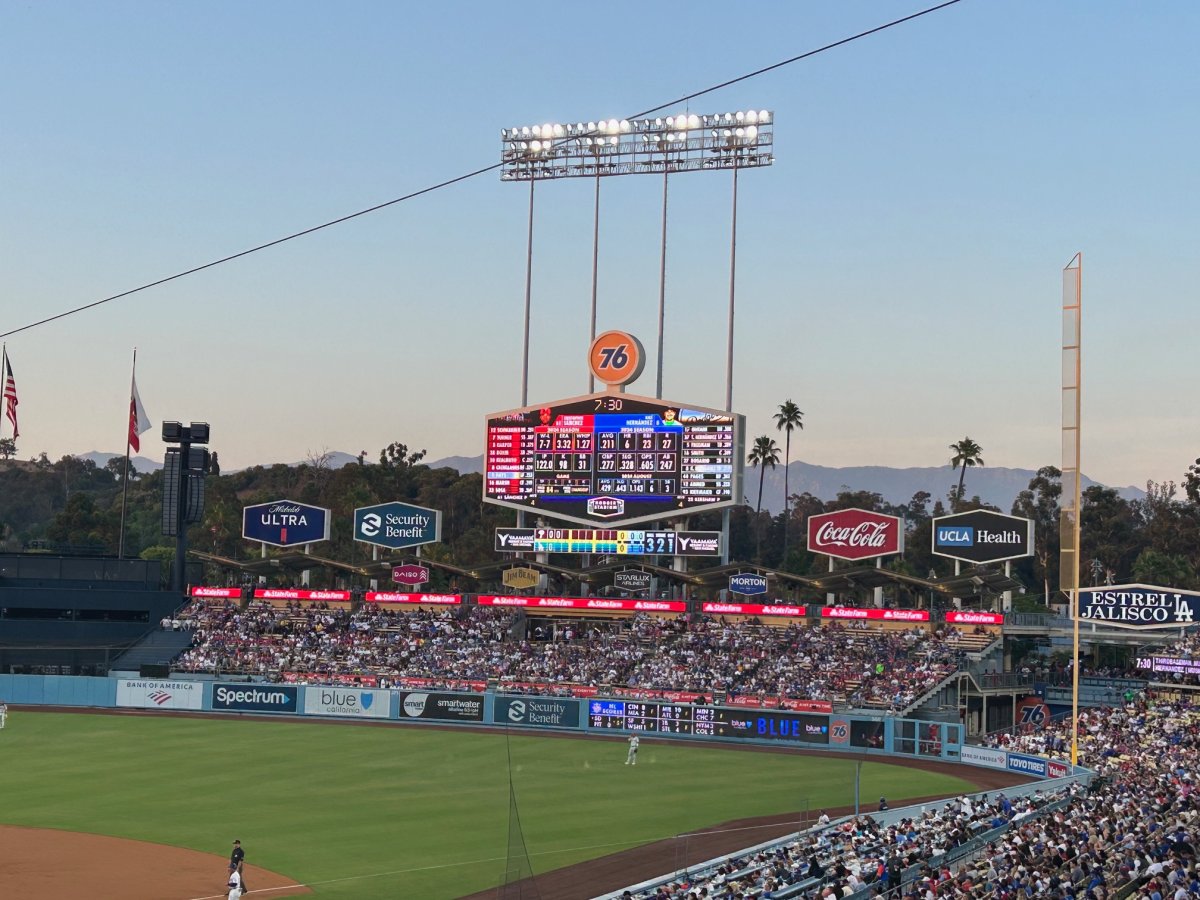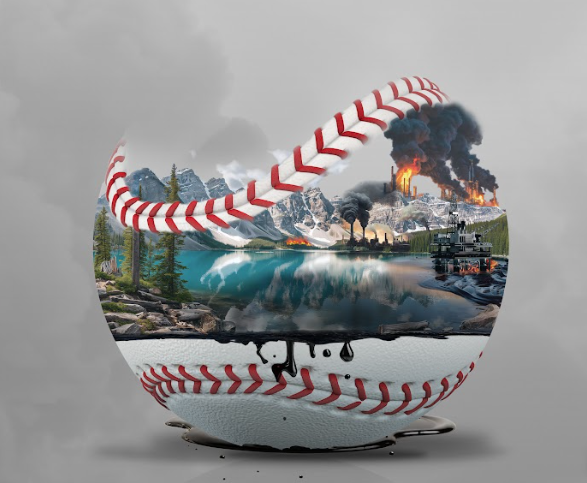The Dodgers Campaign Origin Story
Rum and baseball don't have much in common.
But the two recently came together in a statement of outrage over the Los Angeles Dodgers' sponsorship deal with Phillips 66. The oily multinational owns the 76 gas-station brand whose logos are plastered across Dodger stadium, sending fans the dangerous, deceptive message that Big Oil is as wholesome as a beloved American pastime.

Photo by Zan Dubin
“It’s like the Dodgers are giving their 16-year-old a new car with a set of keys and a bottle of rum and saying, ‘Go for it!’” said Angeles Chapter president Morgan Goodwin. He was being interviewed for an L.A. Times piece about the sponsorship.
The Dodgers are indeed engaging in egregious greenwashing and signatories now numbering over 1000 have endorsed a chapter petition urging the organization to cut ties with Phillips 66, which has sponsored the team for decades. The petition includes an open letter to Dodger owner Mark Walter:
"With record-breaking temperatures reminding us of fossil fuels' lethal effects, António Guterres, secretary-general of the United Nations, has called on all countries to ban fossil fuel advertising," the letter notes. "California attorney general Rob Bonta is suing oil and gas conglomerates--Phillips 66 included--for disinformation campaigns designed to conceal and mislead the public about the catastrophic health and environmental damage resulting from the use of their products."
The team can maintain the status quo, mimicking other teams and sports enterprises backed by Big Oil, the letter suggests. Or it could show leadership by dropping the deal. It could and should set an example to inspire organizations across the globe to take bold action against our climate crisis.
Concerns about that crisis prompted the Dodgers petition. You could also say it all started at the Happiest Place on Earth.
Last spring, Disneyland announced it would electrify the gas-guzzling cars at its iconic Autopia ride by fall 2026, a victory for EV and clean-air advocates who have lodged complaints with local and state air quality regulators as well as with park admin. I led those advocates after a friend complained about the stench. Indeed, all it takes is one whiff to understand why those tailpipes should be capped even sooner and lung-health experts have called the ride's emissions dangerous for Autopia guests and workers and risky for area residents.
"Ironically, the entire Disneyland Resort does not allow smoking or vaping, but its Autopia ride emits many of the same harmful chemicals that people inhale when smoking," Marc Carrell, president of Breathe Southern California, told the California Air Resources Board.
Our Disneyland victory wouldn't have happened without Times climate columnist Sammy Roth, a giant Disneyland fan who wanted to see Walt's world do more for the planet, too. As I promoted plans to keep the pressure on with a rally (including by inviting Jane Fonda after one of her crowded climate talks), Roth repeatedly put the question to Disney officials and within a matter of weeks, they vowed to bring Autopia into the 21st century.
As it turns out, Roth is an even bigger Dodger fan. So when he wrote a column calling for the Dodgers to ditch Phillips 66, I launched the petition with two friends.
It was all "by-hand" at first, as environmental attorney Lisa Kaas Boyle and accountability leader Naomi Seligman and I collected signatures from friends and associates. The response was swift: Bill McKibben, who I linked up with through Third Act, his climate action group for folks over 60 like me, said yes! Actor Kyra Sedgwick, with whom Lisa has long worked to fight plastic pollution, said yes! And Morgan, whom Naomi had collaborated with for a decade, said yes!
On it went apace, even as the three of us independents sought a nonprofit organization for a sustainable effort that could continue as long as necessary. Morgan strongly embraced the campaign from the start, so we joined forces (though MoveOn is still collecting signatures too).
Some have criticized our effort as empty. What harm can a few orange-and-blue logos do?
Plenty. Studies have found that cigarette ads encourage smoking — and that bans on tobacco advertising lead to fewer people smoking, as Roth has reported. He noted that an ad agency working for ExxonMobil concluded that a 12-week campaign in the New York Times increased Exxon’s “brand favorability” by more than 10%. Research also shows that when companies sponsor sporting events, audiences grow to associate their logos or brand with the good vibes of teams like the Dodgers, according to the UCLA School of Law's Emmett Institute on Climate Change and the Environment.
So, yes, we urge the Dodgers to start putting human health and sustainability above profits. Lives depend on it, as our letter says. It shouldn't feel too foreign, either. Walter, whose net worth is reportedly over $6 billion, generously supports wildlife protections, although that seems to defy reason: fossil fuels threaten endangered species and contribute to biodiversity loss. Still, decades before many of their peers, the Dodgers refused to permit tobacco ads at Chavez Ravine. (Maybe a non-oil sponsor could also help the Dodgers compete with Intuit Dome, which boasts 2 megawatts of solar, and SoFi Stadium, which offers 50 EV chargers, where the Dodgers have none.)
Given all this, we call on the Dodgers to do the right thing and hit Phillips 66 out of the park.
Please help us by signing here. And please share our petition.
Zan Dubin runs a communications agency specializing in renewable energy and environmentalism and is co-founder of National Drive Electric Week.
Blog Category:



Add new comment